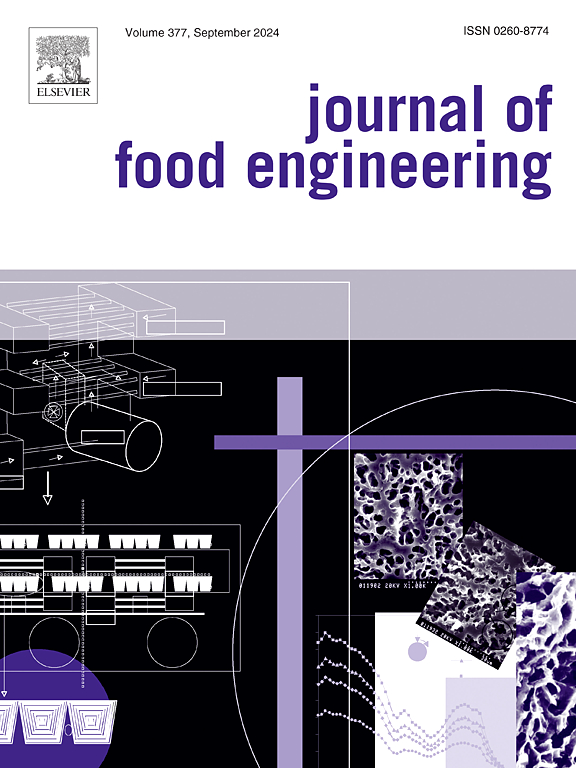Regulation of tapioca starch 3D printability by yeast protein: Rheological, textural evaluation, and machine learning prediction
IF 5.3
2区 农林科学
Q1 ENGINEERING, CHEMICAL
引用次数: 0
Abstract
This article investigated the effects of yeast protein (YP) on gel rheology, texture, and 3D printability of tapioca starch and the feasibility of Principal component analysis (PCA) and support vector machine (SVM) algorithms for classification and prediction of printability. The results indicated that increasing YP content enhanced the viscosity, storage and loss moduli, and hardness, thereby improving extrudability and supportability of 3D printing. The addition of 15% YP exhibited the best 3D printing performance, but excessively high YP addition hindered ink extrusion. PCA analysis based on rheological and texture indices categorized the ink's 3D printing performance into four classes: poor support and low printing accuracy; good support but low printing accuracy; good support and high printing accuracy; and non-smooth extrusion. Furthermore, SVM algorithm used texture data to predict printability classification, with the highest prediction accuracy (91.67%) achieved at polynomial kernel among four different kernel functions. These results confirm that YP can serve as a potential ink for 3D printing and underscore SVM's efficacy in predicting ink's 3D printing performance.
酵母蛋白对木薯淀粉三维打印性的调控:流变学、纹理评估和机器学习预测
本文研究了酵母蛋白(YP)对木薯淀粉凝胶流变学、质地和三维打印性的影响,以及主成分分析(PCA)和支持向量机(SVM)算法用于分类和预测打印性的可行性。结果表明,增加 YP 含量可提高粘度、储存模量、损失模量和硬度,从而改善挤出性和 3D 打印的支持性。添加 15%YP 的三维打印性能最佳,但过高的 YP 添加量会阻碍油墨挤出。基于流变和质地指数的 PCA 分析将油墨的 3D 打印性能分为四类:支持性差且打印精度低;支持性好但打印精度低;支持性好且打印精度高;挤出不平滑。此外,SVM 算法利用纹理数据来预测印刷适性分类,在四种不同的核函数中,多项式核的预测准确率最高(91.67%)。这些结果证实了 YP 可以作为一种潜在的 3D 打印油墨,并强调了 SVM 在预测油墨 3D 打印性能方面的功效。
本文章由计算机程序翻译,如有差异,请以英文原文为准。
求助全文
约1分钟内获得全文
求助全文
来源期刊

Journal of Food Engineering
工程技术-工程:化工
CiteScore
11.80
自引率
5.50%
发文量
275
审稿时长
24 days
期刊介绍:
The journal publishes original research and review papers on any subject at the interface between food and engineering, particularly those of relevance to industry, including:
Engineering properties of foods, food physics and physical chemistry; processing, measurement, control, packaging, storage and distribution; engineering aspects of the design and production of novel foods and of food service and catering; design and operation of food processes, plant and equipment; economics of food engineering, including the economics of alternative processes.
Accounts of food engineering achievements are of particular value.
 求助内容:
求助内容: 应助结果提醒方式:
应助结果提醒方式:


